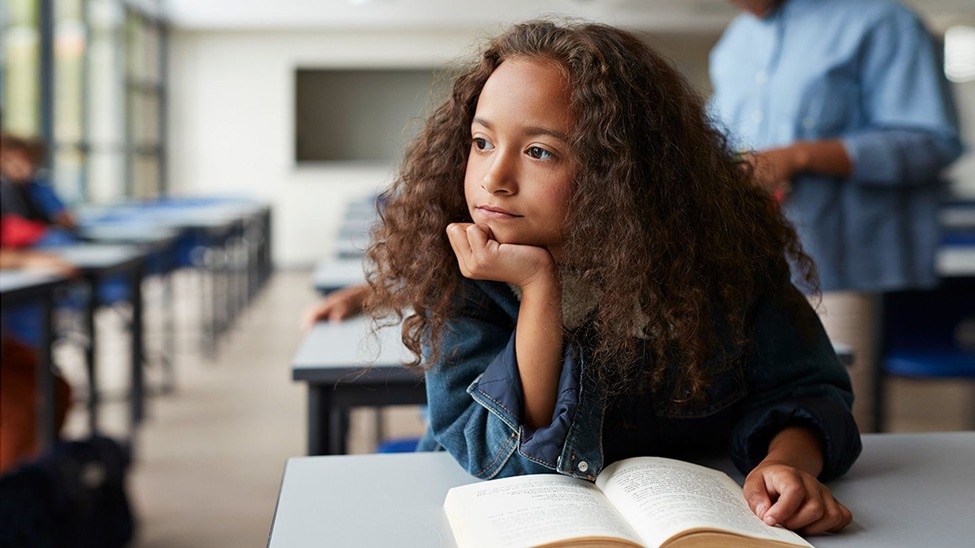
How Does ADHD in Children Impact Academic Performance?
How Does ADHD in Children Impact Academic Performance?

Attention Deficit Hyperactivity Disorder (ADHD) affects many children, making it challenging for them to focus, stay organized, and complete tasks. These difficulties often extend to their academic life, causing struggles in school. This article explores how ADHD impacts children’s academic performance and provides strategies to support their success. Additionally, we’ll discuss how therapy in Clarkston and services like anxiety therapy for children can improve their school experience.
What is ADHD?
ADHD, or Attention Deficit Hyperactivity Disorder, is a condition characterized by difficulty focusing, controlling impulses, and staying still. While all children may struggle with these behaviors occasionally, those with ADHD experience them much more frequently and intensely. ADHD is often diagnosed during childhood, typically when children begin school and symptoms become more noticeable.
Common Symptoms of ADHD in Children
Children with ADHD may exhibit the following behaviors:
- Trouble focusing: Difficulty concentrating on lessons or assignments.
- Forgetfulness: Frequently forgetting homework, books, or instructions.
- Difficulty sitting still: Fidgeting or needing to move, disrupting classroom activities.
- Interrupting others: Speaking out of turn or struggling to wait their turn.
- Organizational challenges: Messy desks, misplaced items, or missed deadlines.
These symptoms can lead to academic difficulties, low self-esteem, and frustration.
How Does ADHD Impact Academic Performance?
ADHD presents unique challenges in school, such as:
- Trouble Paying Attention in Class: Children with ADHD may struggle to focus on instructions, missing critical details and falling behind in subjects like math or reading.
- Difficulty Completing Assignments: Homework can feel overwhelming for children with ADHD. They may start assignments but lose interest or feel unsure how to proceed.
- Challenges with Organization: Many children with ADHD have trouble keeping track of their schoolwork, often forgetting assignments or misplacing materials.
- Impulsivity in Social Settings: Impulsive behavior, such as interrupting or difficulty taking turns, can disrupt group projects and strain peer relationships.
- Emotional Struggles: ADHD often coexists with anxiety or frustration, especially when children feel they aren’t meeting expectations. Anxiety therapy for children can provide crucial emotional support.
Supporting Children with ADHD at School
Here are practical strategies parents, teachers, and caregivers can use to support children with ADHD:
- Provide Clear Instructions: Break tasks into simple, step-by-step instructions. For example, instead of saying “clean your desk,” try “put the books on the shelf, then throw away the trash.”
- Establish a Routine: Consistent daily schedules for school, homework, and playtime can help children with ADHD feel more secure and focused.
- Allow Breaks: Short breaks between tasks can help children release energy and refocus.
- Use Hands-On Learning: Interactive activities like puzzles, games, or experiments are often more engaging for children with ADHD than traditional lectures.
- Implement Positive Reinforcement: Rewarding good behavior and completed tasks can motivate children. For example, use a sticker chart to track and celebrate homework completion.
- Seek Professional Help: Therapy in Rochester and Clarkston or family therapy for ADHD online via telehealth can provide tailored strategies to help children and their families manage symptoms effectively.
The Role of Therapy in Managing ADHD

Therapy plays a vital role in supporting children with ADHD. Here are some therapeutic approaches:
- Behavioral Therapy: Behavioral therapy helps children develop positive habits, such as completing homework on time or raising their hand before speaking in class.
- Family Counseling: Family therapy improves communication and reduces conflicts, ensuring everyone understands and supports the child’s needs.
- Anxiety Therapy: Since anxiety often accompanies ADHD, anxiety therapy for children can help manage stress, build confidence, and perform better in school.
- Parent Training: Therapists can teach parents strategies for creating a structured, supportive home environment.
The Importance of Collaboration Between Parents and Teachers
Supporting children with ADHD requires teamwork between parents and teachers. Regular communication ensures consistency and helps identify effective strategies. For example:
- Parents can share successful approaches from home.
- Teachers can update parents on classroom progress.
- Both can adjust strategies as needed for the child’s benefit.
How Therapy Services Like KindMind Clarkston and Rochester Can Help?
KindMind Counseling in Clarkston and Rochester offers comprehensive services to help children with ADHD thrive. From building organizational skills to managing emotions, these therapies provide the tools children need for success. Whether it’s anxiety therapy for children or family counseling, these resources make a lasting difference.
Final Thoughts
ADHD can create challenges for children in school, but with the right support, they can excel. By working with teachers, establishing routines, and seeking professional help like therapy in Clarkston, parents can empower their children to overcome obstacles and reach their full potential.
Take the first step toward success—explore therapy options at KindMind Counseling and contact us today!
